Estimated Reading Time: 7 minutes
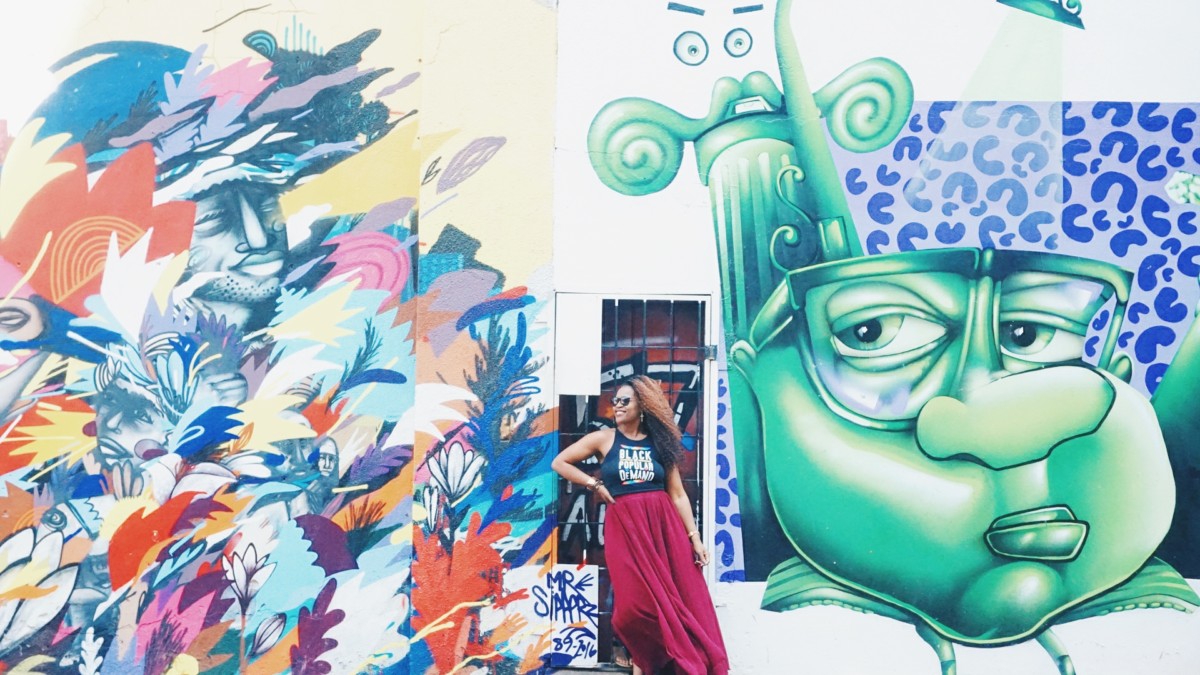
“First and foremost, my seestah, welcome home.” A black South African greets me with this as he learns I’m from the U.S.
I feel this familial aura in the air. This overwhelming sense of comfort. Of pride. Of belonging.
Everywhere I go, the people look like me. They walk like me. And they even talk like me with a hint of sass and character intonating their vowels, giving character to their speech.
In Jo'burg, you're constantly greeted with 'my seestah' and it's a beautiful thing to hear. Click To TweetFor once in my life, I am NOT the minority and holy crap this feeling is amazing.
Growing up in the Bay Area of California, going to high school in Arizona, and then eventually college in Kansas, I’ve always been “the other”.
I could always count how many black people I had in my class or in my grade, usually on a couple hands.
I never knew what that did to my self-esteem until I experienced walking down the streets of a city where I was in the majority. It’s powerful. And my melanin has been glowing a tad bit harder these days because of it.
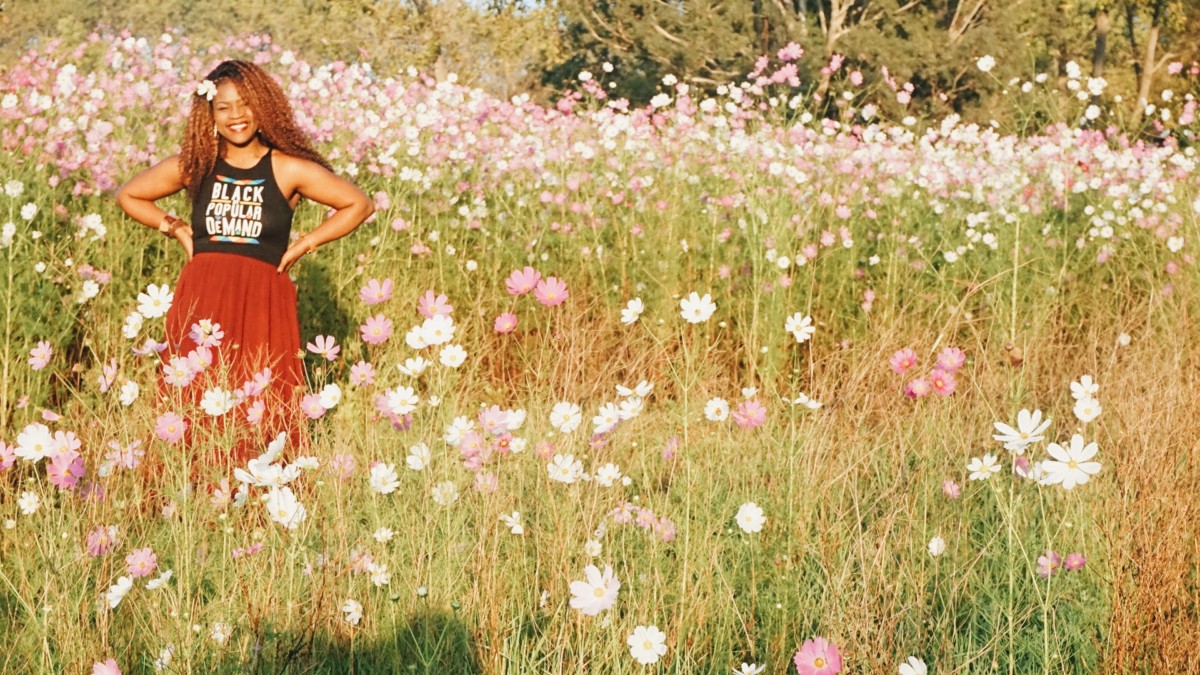
It’s allowed me to be unapologetically black. No hindrance of tiptoeing around someone else’s insecurity of my blackness, like I’m used to doing back in the U.S.
You know most of my adult life, I would go to stores back in the states and be afraid to open my purse to pull out my shopping list or phone, scared that a worker might see me open and close my purse and assume I stole something.
Nuances in reception based on your skin color are one of the most exhausting things about living in the U.S. as a black person.
But here, I could talk a bit louder. Laugh a bit longer. Smile a bit wider with ZERO f*cks fears of people judging me for being “so black”.
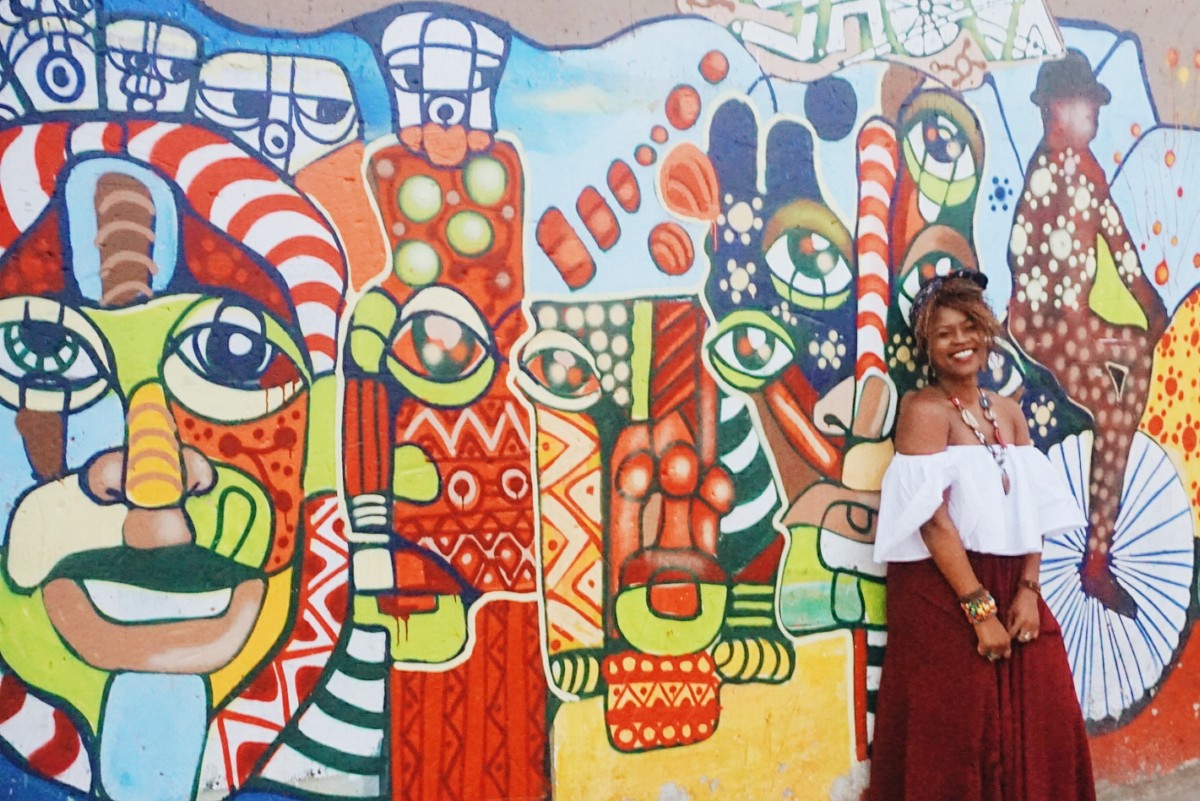
I was experiencing that chameleonic feeling of being perceived as a local and a foreigner at the same time.
I look like them, but then I don’t. And I can see them try to figure out my origin.
It draws intrigue, and I always answer it with a smile.
I study the movements and interactions of people intensely on my first day, trying to do what I can to blend in.
Johannesburg is such a cosmopolitan city, where you feel like there’s a mix of local and expatriate vibes at the same time.
The pace is laid back, yet busy, and I’m curious to know what gets them going.
“What makes you happiest about living here?” I ask my new friend Naledi, a Nigerian-born, British-raised, South African citizen.
“The quality of life here is deep. There’s so much variety historically and culturally. Yes, there is corruption, but what country is without it?” she admits.
We laugh about our Nigerian roots and this colloquial bond that develops almost immediately reminds me once again, this is home.
I’m happy to be here. I’m mad it took me so long.
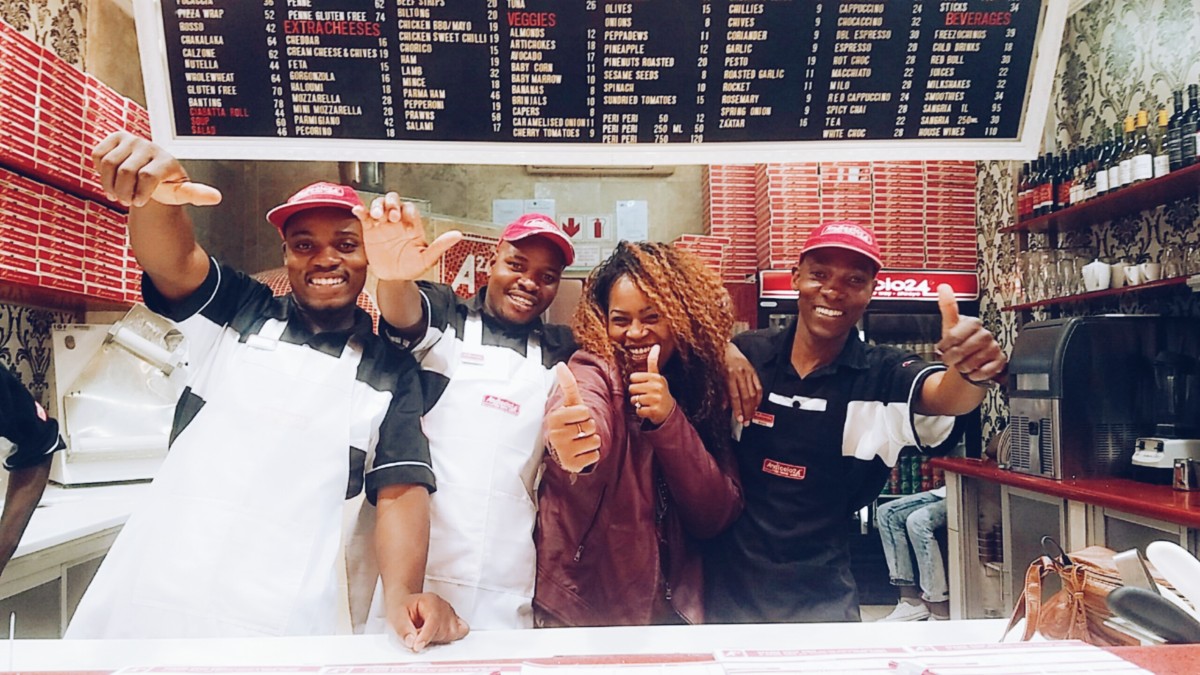
In my taxi on the way to meet up with some locals from Instagram, my driver exclaims, “I’m so happy to meet someone from America!” once my western English accent is spotted. “Have you seen my man Tupac!?” Hahahaha.
Mood heightened, he quickly changes the music to a Snoop Dogg and Naughty By Nature playlist. #ITSLIT ?
Him: “So how long are you here– but no, don’t go back. You’re home now. You made the right choice to come. I think all Black Americans must come home to experience what it’s like to live in a black country.”
Again, even growing up in a diverse state like California, I remember as young as 10 years old, walking into class on the first day of school and praying I wouldn’t be the only black person.
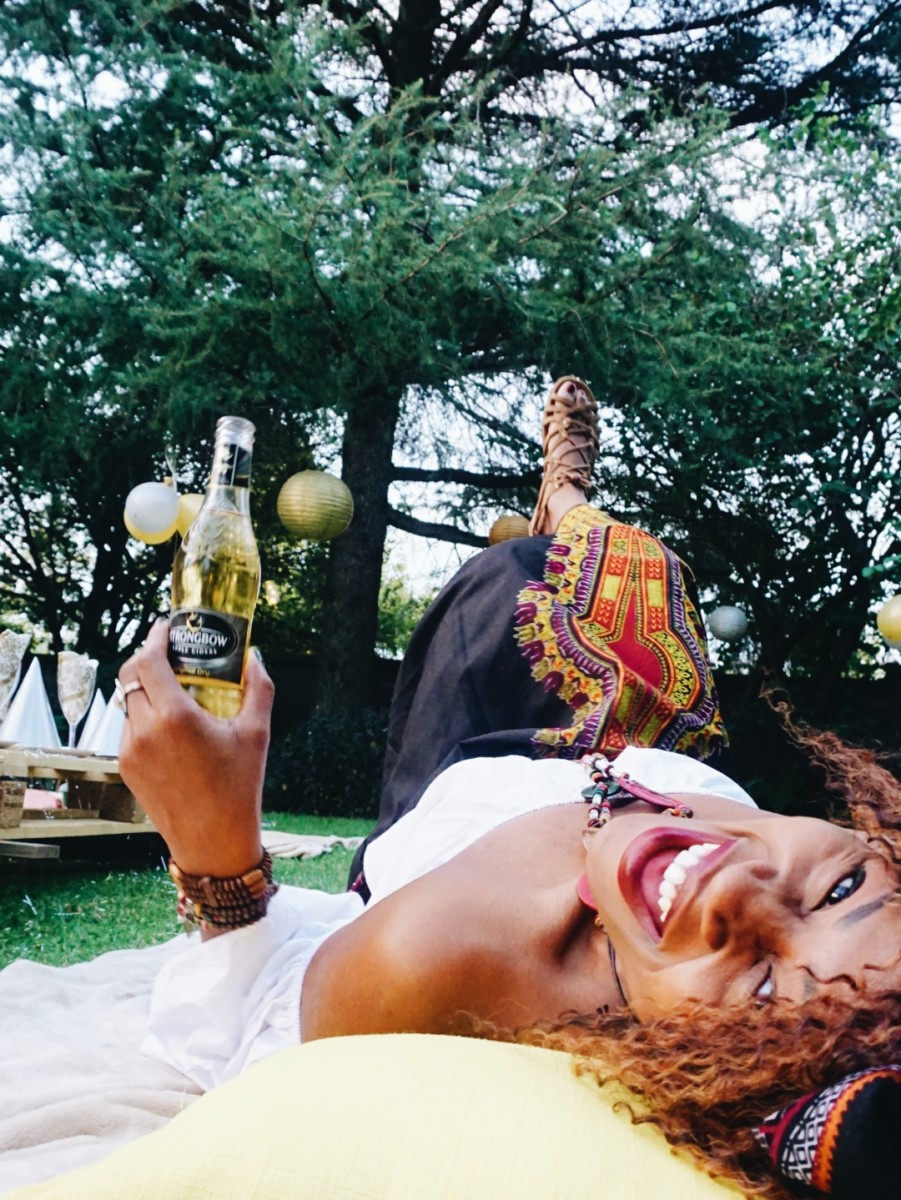
Your prepubescent years are shaped around fitting in and being accepted.
I hated being different.
I hated that I inherited being a spokesperson for the black community, because I was always the only one.
I love other cultures and will make friends and conversation with just about anyone.
But there is NOTHING quite like the companionship of a fellow black person who can relate to certain things you can’t talk to just anyone about.
The hair struggles, allyship, and the dozens of subtle nuances around our existence in society.
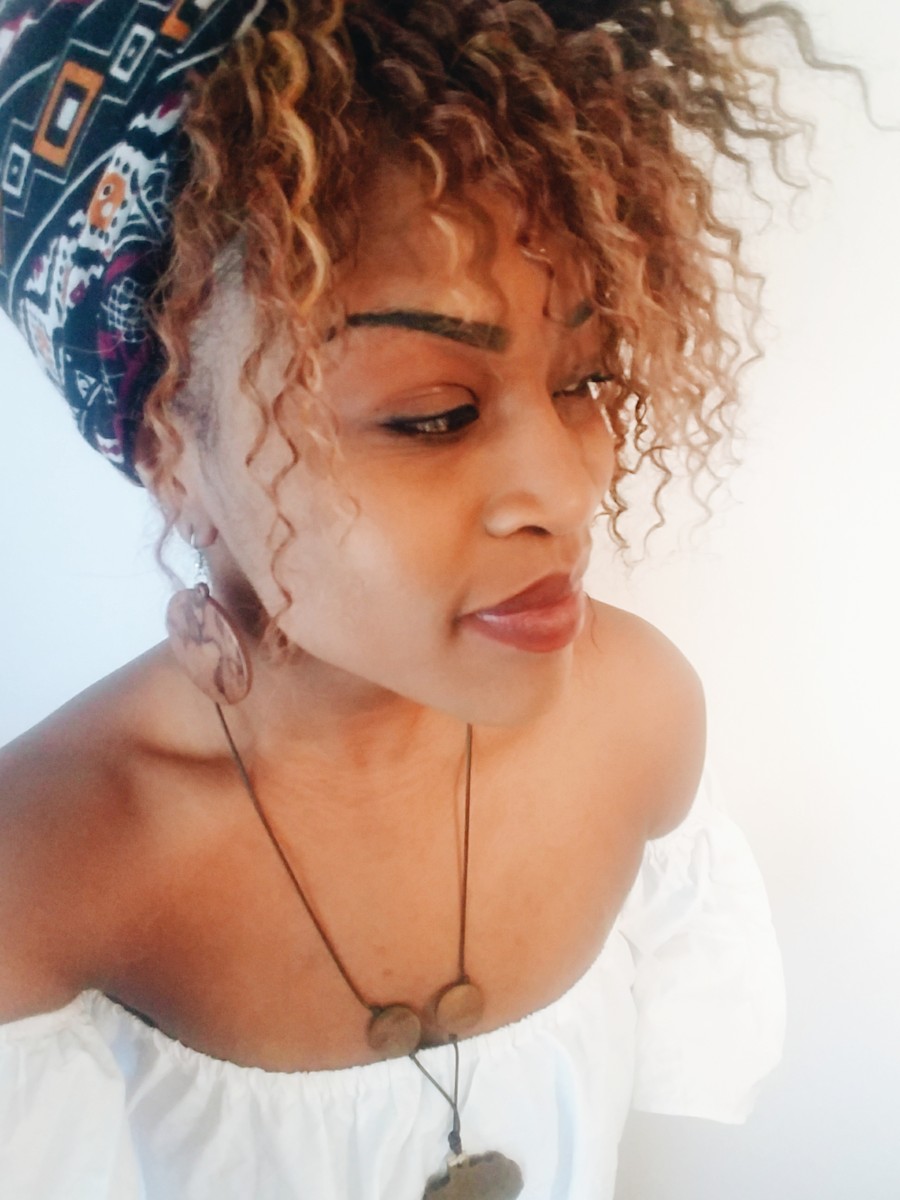
I share some of these thoughts with the taxi driver and he keeps looking back at me in joy, seemingly distracted by a lingering thought, and then it blurts out like his next breath of air depended on it– “WOW! I feel like I’m driving Obama, himself!!!” LOL! Welllll, he follows me on Twitter, so you basically are ?
With every conversation I have and person I meet, I feel my family multiplying by the dozens.
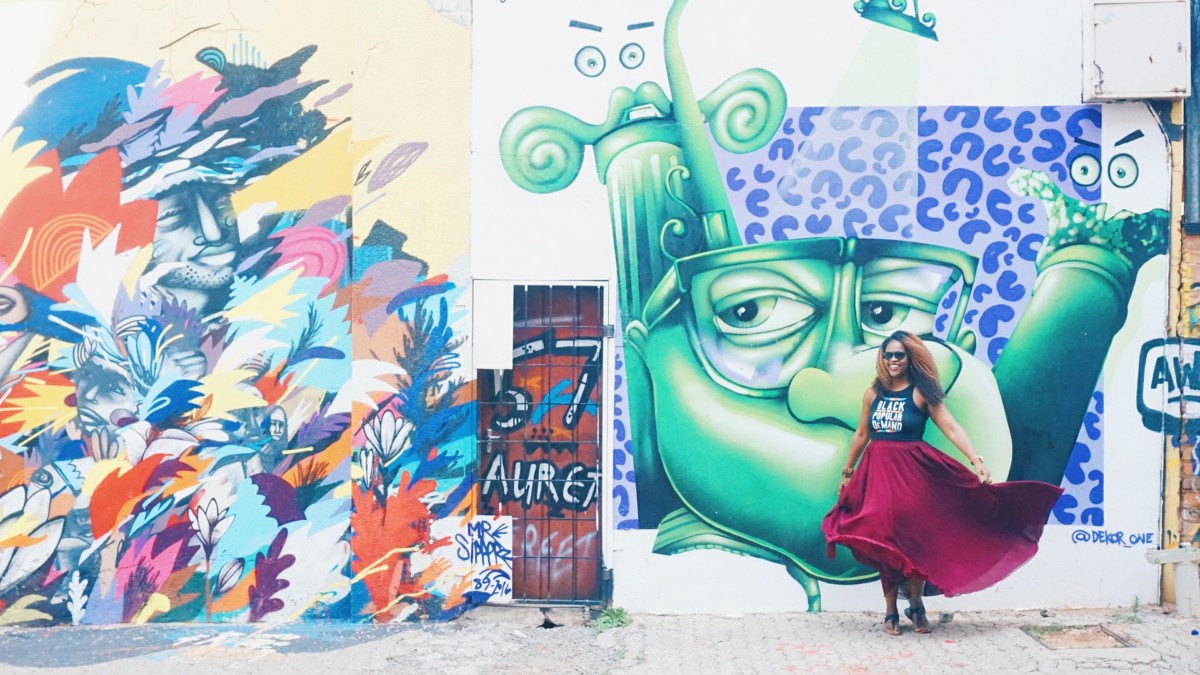
So many people told me not to waste time in Johannesburg and go straight to Cape Town, but that annoyingly unfair conclusion made me even more drawn to visit it. And that’s why I never put too much weight on the advice of others.
What was it that made it missable? Did they even give it a try? How many days were they here? I had questions.
Because I’m learning that so much of your travel experiences rely heavily on your willingness to put yourself out there and talk to anyone and everyone who crosses your path.
But not everybody is equipped with my shamelessness to spark a conversation on cue. So I knew there was potential to make something special out of my visit, even despite having a rocky start in the airport.
And no visit to Johannesbug is complete without a sobering stop at the Mandela House in Soweto (Southwest Township).
I was admittedly a jumbled mess of emotions and I already accepted the discombobulation of my thoughts when I arrived.
My experiences growing up as a first-generation American to two African (Nigerian) immigrants were being inexplicably pieced together by my travels now.
I made my way inside Mandela’s House ready to feel the energy of a legend.
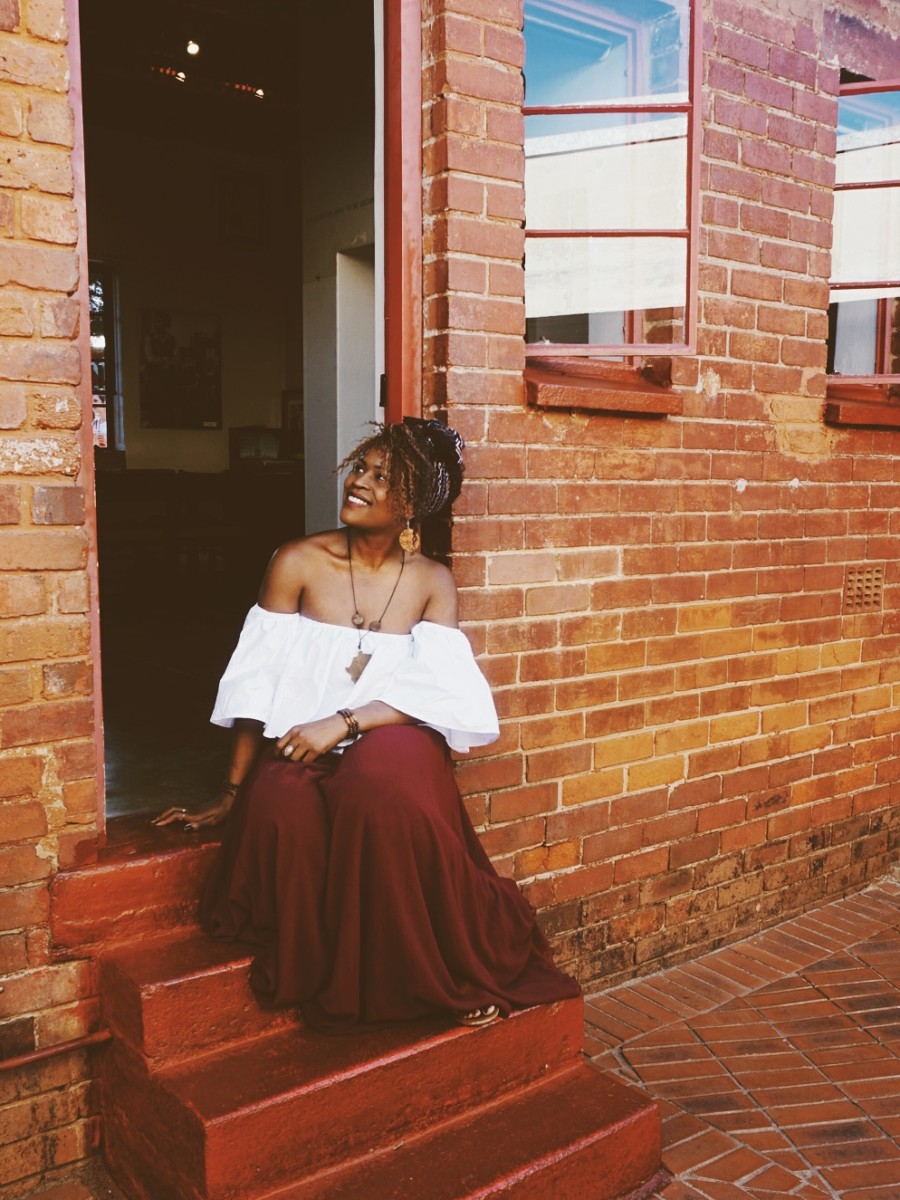
I sat on the steps pictured above that led to his house where you could immediately feel this magnetic pull of hope in the air.
You felt the magnitude of his legacy the minute you stepped inside.
I saw the same photos of him in his house that my parents hung in our house as a kid.
And then began my recollection of his speeches, and why my Nigerian parents valued his name so much in my childhood.
“I have cherished the ideal of a democratic and free society in which all persons live together in harmony and with equal opportunities… It is an ideal for which I am prepared to die.” I cried.
I cried.
To think Apartheid barely ended in 1994, meaning any South African over the age of 23 probably has a vivid memory of living in a segregated society.
Imagine your skin color by birth being the reason laws are passed to legally keep you oppressed.
People in the U.S. don’t have to imagine too hard, but it did give me a new sense of appreciation for the advancements we made at an earlier rate.
And you can’t quite grasp the depth of Mandela’s contribution until you understand the circumstances through which he overcame.
His legacy is truly remarkable and yet another piece to the puzzle of my African roots felt complete.
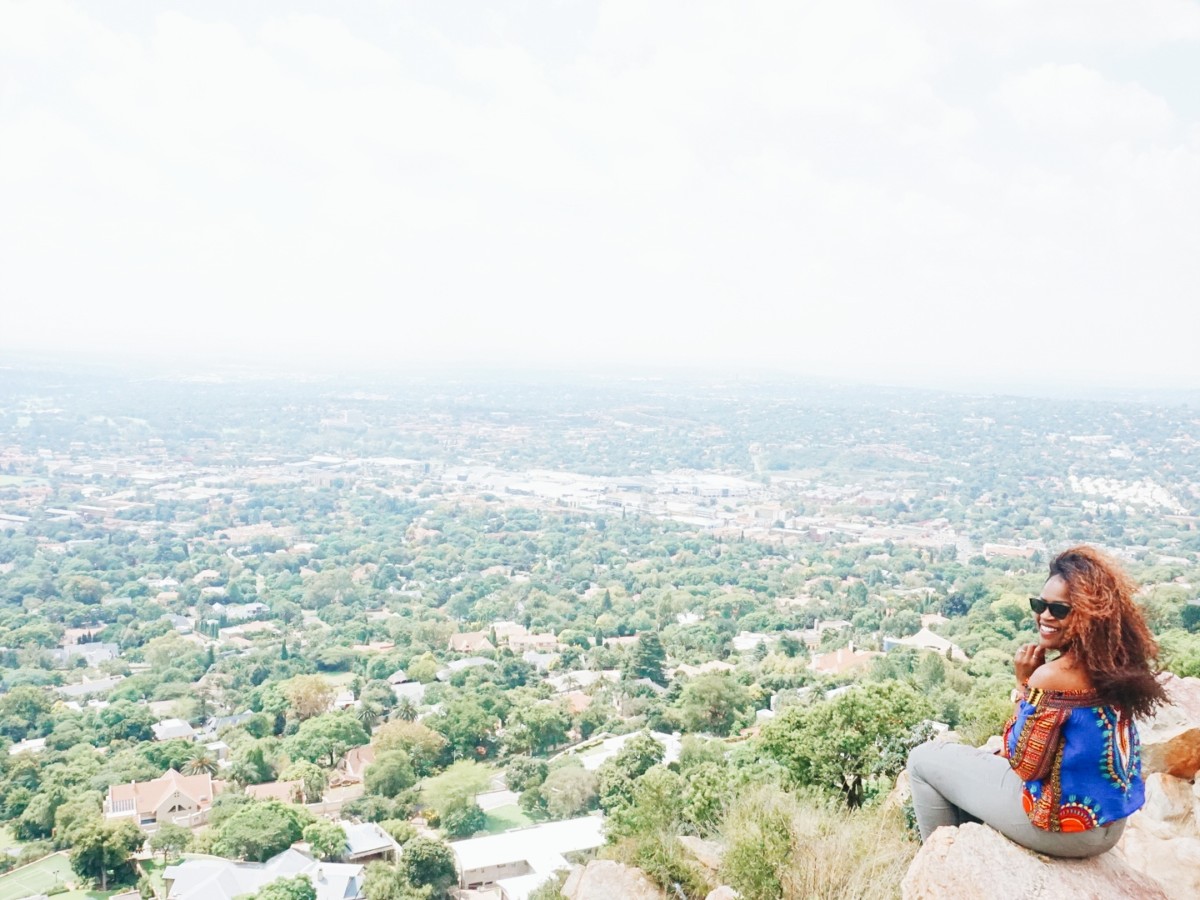
WHAT TO DO
While the braai (BBQ) culture is massive all around South Africa, the highlights of my trip were my stops at:
- Mandela House
- Maboneng District
- Apartheid Museum
- Market on Main in Maboneng
- Day trip to Pretoria (the nightlife is INSANE)
WHERE TO STAY
I stayed at an AirBnb the first few days to allow myself space and time to sleep my way through jet lag and catch up on work.
And then I had the pleasure of being hosted by Cheslyn, a new friend, art director, creative, and probably one of the most connected people in Johannesburg. Thanks for introducing me to all your friends, the backstage pass to the concert, and your Netflix account, hahaha.
If looking for hostels, I found these districts to be reasonably safe and well-connected: Maboneng, Randburg, Rosebank, Sandton, and Northcliff.
Johannesburg is a MASSIVE city, so feel free to district-hop to get contrasting feels of different neighborhoods.
GETTING AROUND
Taxi drivers, globally, pretty much suck LOL, so they’re always my last resort. Lyft isn’t yet in South Africa, so Uber is your next best thing. Incredibly cheap, reliable, and the drivers are the best (and usually from Zimbabwe).
I can’t speak on public transportation because I never used it, but if you’re concerned about safety, Uber is really going to be your best bet. I’d look into having a hotspot device before coming, or T-mobile, as they have an unlimited 4G connection out here.
PRACTICAL INFORMATION
If you’re deciding between how many days to spend in Johannesburg vs. Cape Town, divide it based on the type of experience you want to have.
I’ll write about Cape Town soon, but Johannesburg is a city where you connect to the people, and Cape Town, you go more for the views and aesthetics.
If you have 5 days, for example, I’d do 2 days in Jo’burg and 3 in Cape Town.
Johannesburg is a busy and fast-paced city. Some people compare it to New York in terms of the hustle and bustle.
It’s also called “Egoli” which means “the place of gold” because 40% of the world’s gold is found in the greater Johannesburg area.
Jozi is the financial hub of South Africa, so it’s filled with businessmen and businesswomen everywhere.
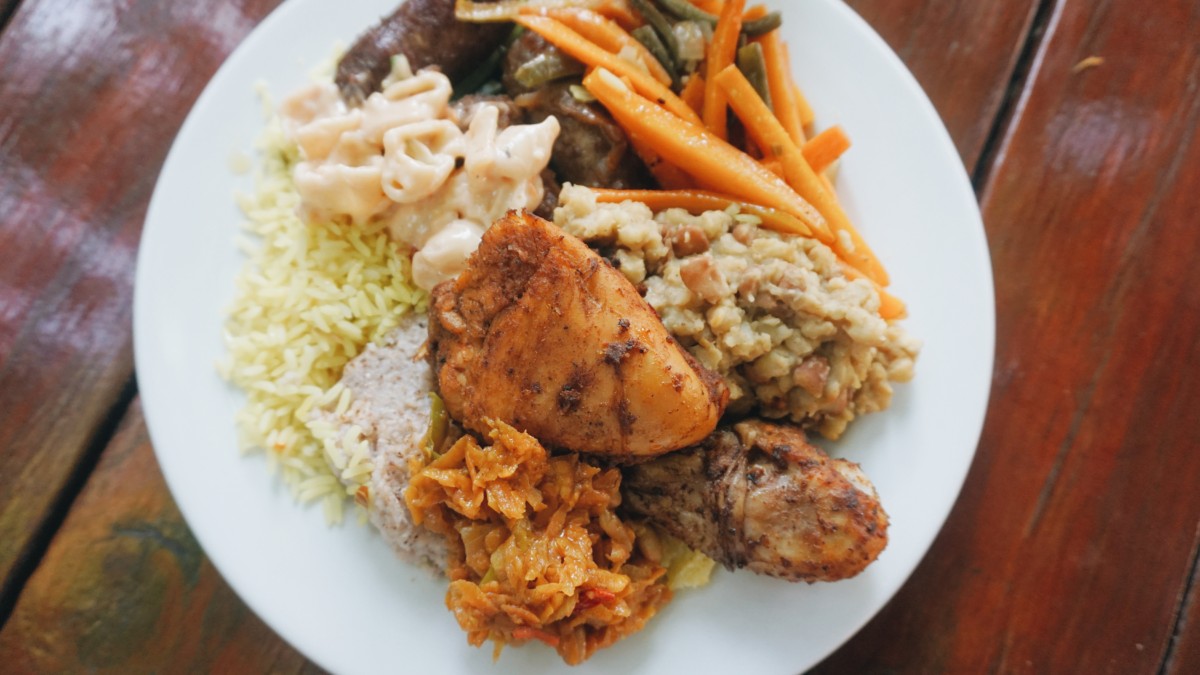
While authentic African food was hard to find, the restaurant and eating culture is massive, and just across the street from the Mandela house you’ll find a nice buffet restaurant called Sakhumzi filled with all kinds of local food.
My favorite was the “chakalaka” (yes, that’s the name lol), and it’s a South African relish served with bread, pap, samp, stews, or curries — it’s amazing!
The buffet style of eating allows you to sample all the foods they have, and then go back for seconds on the ones you liked the best.
I’m an adventurous eater (to a degree), but I loved getting the chance to try everything and then go to town on my favorites.
Rivonia on Deck Restaurant is also an amazing and authentic eatery, especially during the evening when it’s lit up and the Durban house music is jamming in the background.
Overall, Johannesburg was a gem, and a perfect introduction to Mama Africa. So if you’re looking for a deeper experience in South Africa, Jo’burg is simply a must.
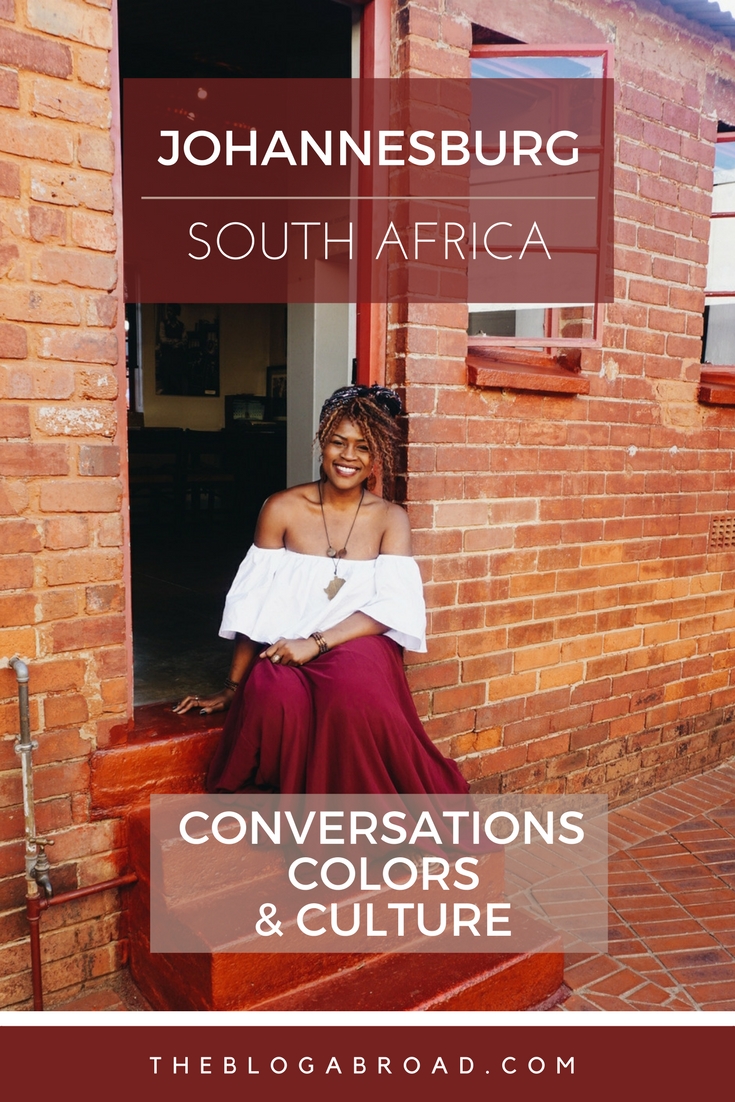
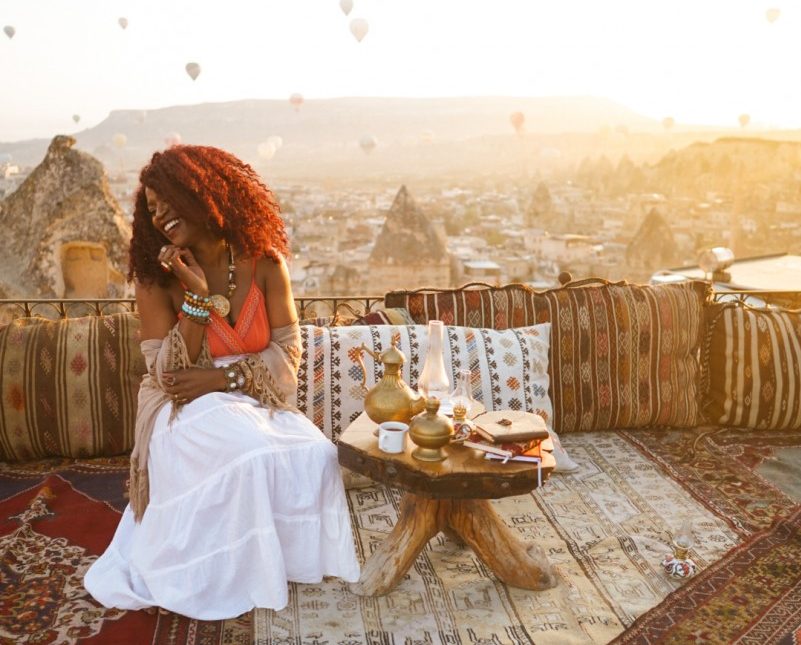
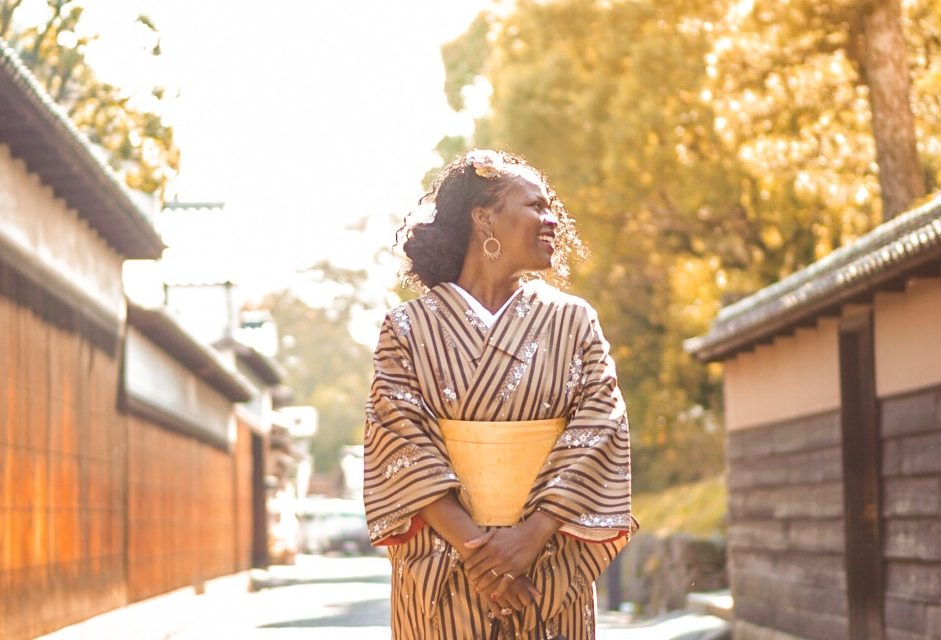
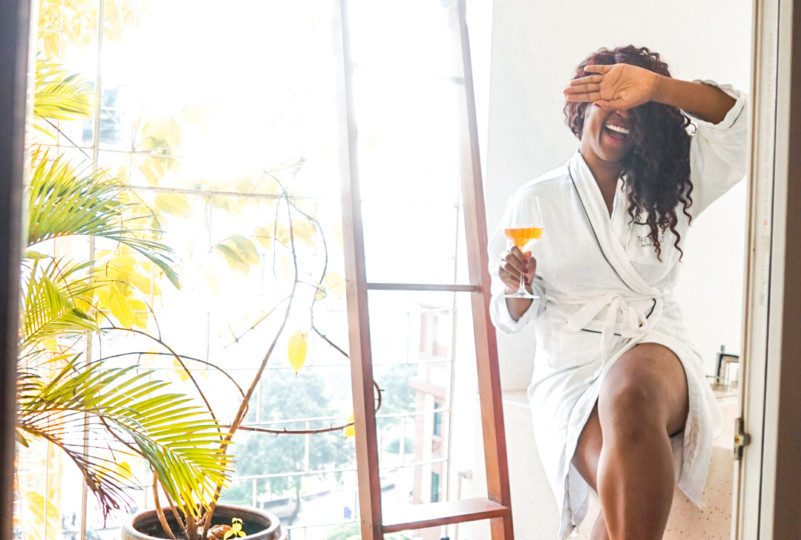
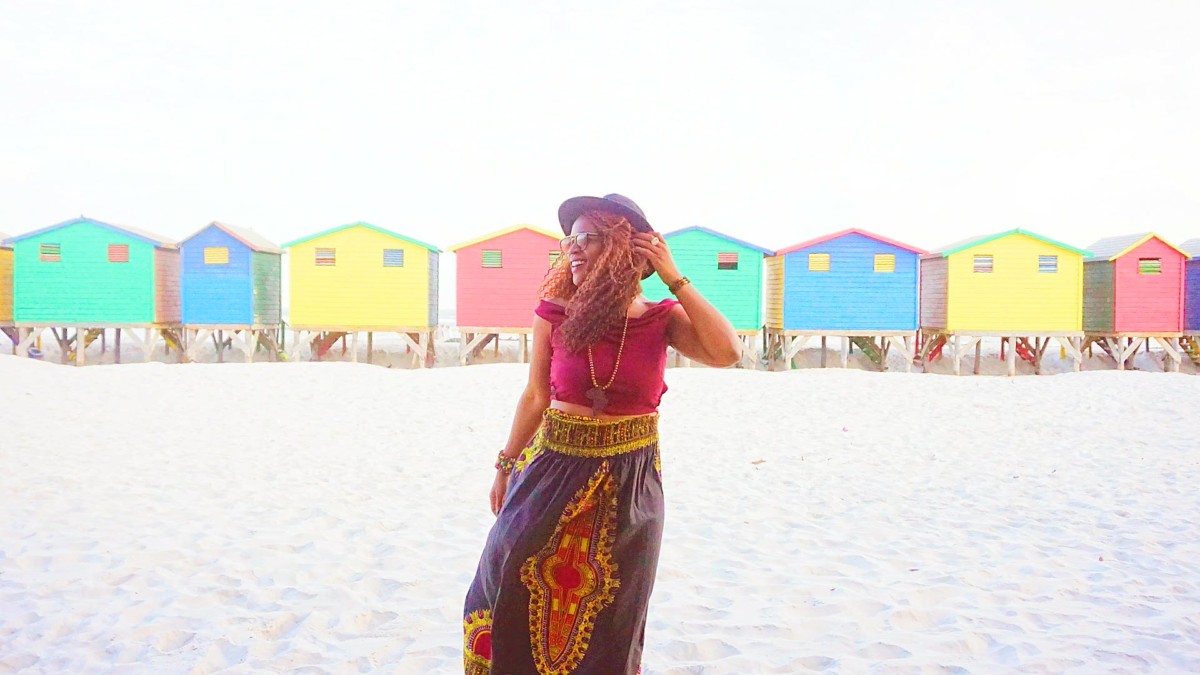
I just found your blog from Oneika’s blog and lo and behold you are in South Africa! I’m from South Africa but just moved to the US, Florida for grad school. This was so interesting, watching my home country through another’s eyes. I found it interesting that the one thing I find annoying annoying about home you liked 🙂 The men hollering at every street corner! It is one of the things I have been commenting about while here, how nice it is walking on the street without a man shouting at you “hello my seesta! Smile for me my seesta!” it can be soooo annoying.
I loved this article and your reference to Durban music 🙂 🙂 *presses play on her playlist*.
I hope you enjoy the rest of your stay in Africa, I have’nt traveled much in the continent (it is so expensive, it’s cheaper to go to Thailand than some countries in Africa 🙁 but where I have been I have absolutely loved it!
Best
Zoe
Glo I just loved reading this piece. You summed up everything I loved about Johannesburg and more. As a white, Irish person, coming from a place that is still quite homogeneous, I felt it strange to be in the minority. I now live in Tanzania where often there is a big fuss made of white people, and obviously there are still a lot of black people living in poverty so you find a lot of neocolonial attitudes. Yet in Johannesburg, nobody looked twice at me unless I went out of my way to introduce myself or make conversation. This might seem simple but I think it’s so important for white people to travel places where black people are in the majority and are visibly successful because, unfortunately, we just don’t see it in the media. I’m enjoying following your Africa adventures so much as I know that awe and amazement and being somewhere so beautiful. If you come to Tanzania, you’re welcome to get in touch. I’d love to show you around Dar es Salaam (another city with a bad rep!) Karibu sana!
It’s really interesting reading this! I’m not from the US but I’m still a bit ashamed to think that, even though I am aware of what you’re describing, I’ve never fully understood it. Even in India where I was the “minority” it was just for a limited time so I have no idea of what it feels like when it’s your daily life. I love your articles because they always make me think about stuff I don’t always fully grasp. Thank you for that!
This was very wonderful to read. My favorite parts were about how you felt like you were home and being around people of your color. I’m from the Caribbean island of St. Lucia, a french and english island and we have both blacks and whites and the whites we are used to because they too are lucians and our friends and family as well. I spent a year studying in Italy and it was very overwhelming because for the first time I felt that i was so visible. I was not ashamed of my color just not in a different setting and had to keep reminding myself that you belong here despite your skin color being darker than theirs. Hopefully I had no racist incidents and it was truly a wonderful experience and now I am back home and it was at first to be surrounded by so many people of my shade. I am just very happy that you found a sense of peace and joy on this trip. Thanks for sharing.